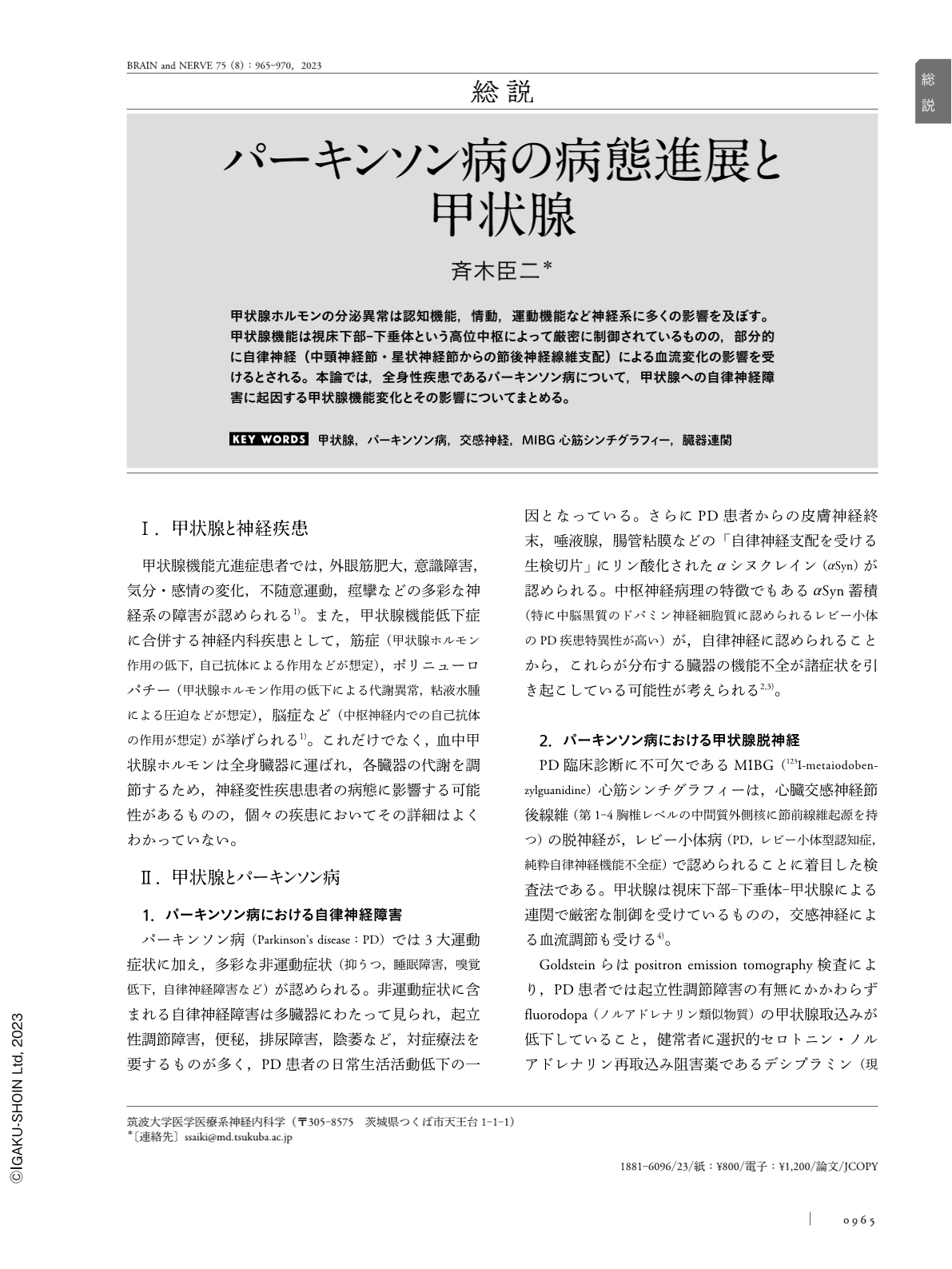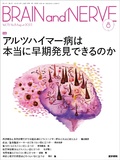Japanese
English
- 有料閲覧
- Abstract 文献概要
- 1ページ目 Look Inside
- 参考文献 Reference
甲状腺ホルモンの分泌異常は認知機能,情動,運動機能など神経系に多くの影響を及ぼす。甲状腺機能は視床下部-下垂体という高位中枢によって厳密に制御されているものの,部分的に自律神経(中頸神経節・星状神経節からの節後神経線維支配)による血流変化の影響を受けるとされる。本論では,全身性疾患であるパーキンソン病について,甲状腺への自律神経障害に起因する甲状腺機能変化とその影響についてまとめる。
Abstract
Various neurological disturbances in mental status, cognitive function, emotion, and motor function are observed owing to hypo- or hyperthyroidism. Although excretion of thyroid hormones is tightly regulated by the hypothalamus-pituitary gland-thyroid axis, it is partly influenced by blood flow regulated by the postsynaptic sympathetic fibers. In patients with Parkinson's disease in early stages, previous studies using cardiac MIBG scintigraphy or fluorodopa positron emission tomography showed mild-to-moderate denervation of the thyroid. However, whether the autonomic denervation of the thyroid may influence its excretion function, potentially leading to systemic metabolic changes originating from other organs, remains unclear. In this context, we examined the association of thyroid function with Parkinson's disease focusing on the autonomic nervous system referring to our latest achievement. Cardiac MIBG scintigraphy identified decreased uptake of the thyroid especially in early stages of Parkinson's disease with constipation, implying systemic autonomic denervation. Using multiomics analyses, we identified that the autonomic denervation-hypothyroidism-liver axis presented with insufficient fatty acid β-oxidation in patients with de novo Parkinson's disease.

Copyright © 2023, Igaku-Shoin Ltd. All rights reserved.


